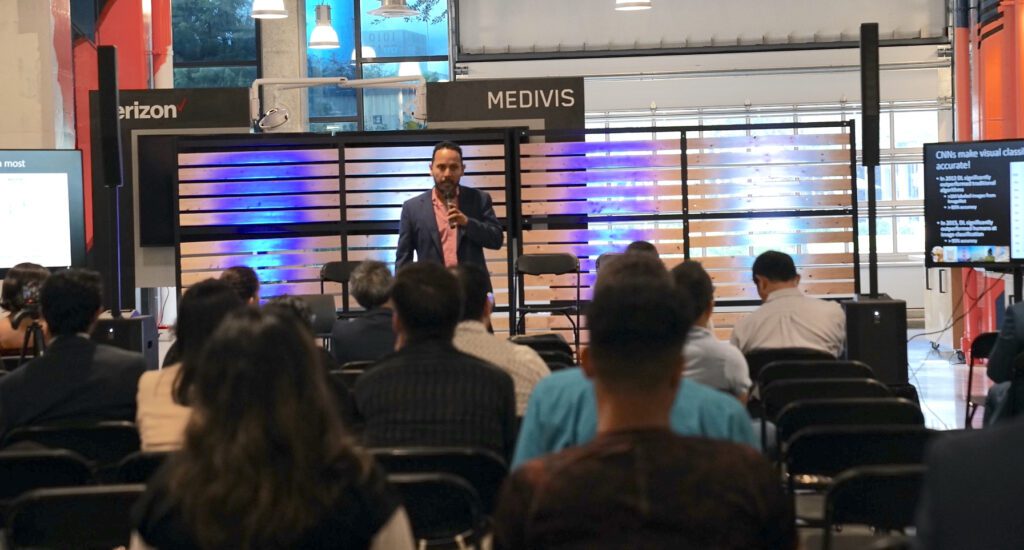
In the age of big data, companies track and analyze our buying habits, hobbies and social media accounts to make business decisions. But the impact of big data could have an even greater potential – improving human health.
That was the focus of a recent Wellness Education, AI Lifestyle and Health (WEALTH) Symposium in Lake Nona, organized by Dr. Dexter Hadley, a College of Medicine physician and big data expert who lead’s UCF’s Division of Artificial Intelligence.
“The UCF College of Medicine is a young school with lots of opportunities and forward thinking,” Dr. Hadley said. “I want to see the bridging between engineering, AI and medicine.”
The event was held at the leAD Sports & Health Tech Accelerator that supports med/tech start-ups in Lake Nona and included presentations, posters, networking and brainstorming sessions.
Dr. Hadley showed how healthcare providers can leverage the power of AI to make medicine more precise. For example, the American Cancer Society reports that mammograms miss 1 in 8 breast cancers. By using AI screening algorithms to analyze millions of mammograms, Dr. Hadley said technology can look for markers that radiologists may miss, leading to better and earlier breast cancer diagnoses that will save lives.
In a 2018 study he conducted at the University of California San Francisco, Dr. Hadley found that computer analysis AI helped identify breast cancer sooner than clinical diagnosis. That’s because the computers could be programmed to extract intricate details from multiple layers of data.
A challenge to creating these predictive models is accessibility to patient’s medical records due to privacy laws. Dr. Hadley said given the amount of information big data gathers on individuals today, he hopes healthcare can develop better systems to share de-identified patient data to treat disease. “AI is in every aspect of our lives and we should have more rights to our own medical data,” he said.
His passion for merging engineering, AI and health was shared by fellow conference speakers. Dr. Robertico Croes, of UCF’s Rosen College of Hospitality Management, spoke on using AI to make travel more inclusive for people with disabilities. He said AI could analyze information from health services, medical providers, hotels and transportation to ensure appropriate services for disabled travelers. “This would allow 60 million people to travel and create new business opportunities and empower people to do things they want to do,” he said.
Dr. Deborah German, vice president for health affairs and founding dean of UCF’s medical school, told attendees the symposium illustrates how the future of healthcare might look. Technology and health partnerships are “the next quantum leap,” she said. “Whatever you are dreaming, it can happen here.”